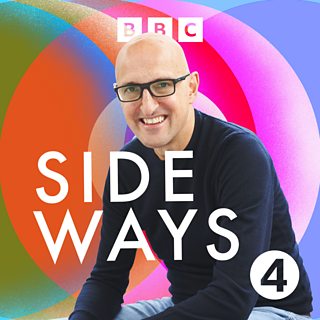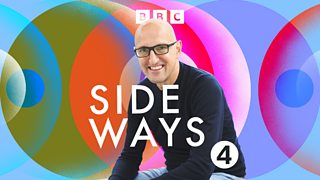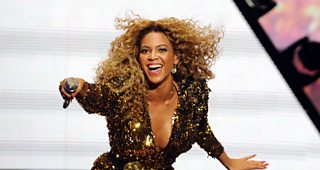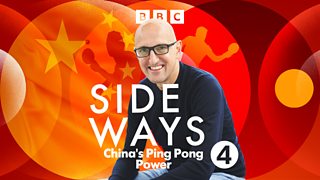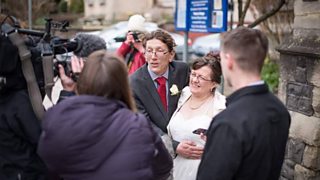Is it time to embrace your inner villain?
Do you think that you’re too “nice”? Could your niceness be holding you back? If so, it might be time to become a bit more villainous.
In an episode of the Radio 4 podcast Sideways, Matthew Syed asks us to consider embracing our inner “villain”.
Matthew speaks to several people who have shaken off the “nice” label and found strength in indulging the darker, supposedly more “villainous” parts of themselves.
If you are thinking of exploring your inner villain, here are just some ways to make it work for you…

Act the part
In our day-to-day lives we usually shy away from people we perceive as “bad” and would much rather identify with those with obviously “good” qualities. But in our down time, we’re different. As Matthew reveals: “While we don’t want to see the villains in ourselves, there’s nothing we love more than seeing them onscreen.” Whether it’s Tony Soprano, Walter White or Angelina Jolie in Maleficent, we like our anti-heroes to be complex and compelling.

I think we feel obligated, as women, that we have to look after certain people.Amanda Lovett
As film academic Dr Margrethe Bruun Vaage explains: “There’s something very appealing about a character who is a mix between a hero and a villain… They make the story more engaging and more interesting.”
We need villains to add a bit of spice to life. And if we can be the ones providing the villainy, we might just make our own lives a bit more interesting. Amanda Lovett was used to putting other people first, but all of this changed when she agreed to appear on the smash-hit show The Traitors.
“I think we feel obligated, as women, that we have to look after certain people,” explains Amanda. But to survive on the show, she knew she needed to ditch the pleasant demeanour and get tough. And she found it liberating. “If you really want to do something, dig into that dark side of you. Do it. If someone doesn’t like it, tough.”
It might feel like it goes against all your better instincts to ditch the “nice act” and be a little more of a meanie. But, as Amanda discovered, adding a bit more balance to your life could be liberating.
Shed your old skin
In the classic TV series Breaking Bad, Walter White’s wife Skyler tries to do the right thing when faced with her husband’s criminality. But viewers disliked her for this, believing she was holding Walter back, even if she was morally right. But how much did this have to do with her being a woman?
Dr Bruun Vaage explains: “Women are held to a higher moral standard. We are expected to be more empathic.” But author Rachel Simmons, who coaches women in the workplace to be more assertive, insists that it’s vital women outmanoeuvre these expectations. “They have to manage the discomfort that comes with being a woman who plays big.”
Musician Mala Waldron felt the pressure of trying to act appropriately at all times. “For years people mispronounced my name and I never would even correct them… It’s like you’re a prisoner of being nice.”
But Mala eventually managed to move away from that side of herself: “There’s a beautiful freedom that I feel in my life now… not being so worried about the ‘nice’ label. It’s so important for women especially to express how you feel about things.”
Telling people exactly what you want and not settling for experiences that inhibit your life might come across as rude to some and go against your natural instincts, but it could improve your quality of life enormously.
Enter your villain era
Promoted by various influencers on TikTok, the “villain era” encourages young women to destroy expectations, refuse to be agreeable and set their own boundaries. It’s about identifying those aspects of your life where you feel you’re not being treated fairly and trying to take a new approach in order to get what you want.
It’s about making a conscious choice about how you want to be treated. Niceness might make others feel better, but it could also lead to delay and frustration if you’re denying your own happiness for the short-term satisfaction of those around you.
As Matthew highlights: “When you’re able to free yourself from the shackles of expected niceness, the sky can be the limit.”
Embrace your totality

I felt egged on to be even edgier, even ruder and it felt so fun and so exciting to explore.Chelsea Birkby
The psychoanalyst Carl Jung theorised about a “shadow self” of our personalities. The naughty to the nice. The bad to the good. The thoughtless to the considerate. Often people try to focus on the more redeemable qualities and avoid the opposite. As Matthew Syed suggests, this isn’t about “embracing actions and behaviours that cause hurt to others. But it is, I think, useful advice to avoid repressing the parts of ourselves we don’t like quite as much.” Embracing your inner villain means accepting the less attractive side is also part of us.
Comedian Chelsea Birkby was constantly referred to as “nice” when her stand-up sets were reviewed. Troubled by this, she was encouraged to engage with her “not nice” side and focus on that in her comedy. “I felt egged on to be even edgier, even ruder and it felt so fun and so exciting to explore.”
This change of direction completely altered her comedy, led to rave reviews and transformed her life. She started to dress differently, rejecting her nice girl image, and in what sounds like “a badly written sitcom”, she quips, she even bought a leather jacket, “I thought: ‘Woah, who am I? Is this the new me?’”
So, while not going fully Darth Vader and moving over to the dark side, trying to reconcile and accept your inner villain and utilising it on occasion can be rewarding.
Matthew Syed concludes: “Many of us… have been taught that if you stand your ground… and stop being so bleeding nice all the time, that it makes you into some sort of villain. But I think it can make you the hero of your own story.”
More from Sideways
-
![]()
Love Thy Villain
Matthew Syed looks at the merits of embracing your inner 'villain'.
-
![]()
Why we all need an alter ego
Some successful people use alter egos. But the benefits aren鈥檛 limited to the stage.
-
![]()
China's Ping Pong Power
Former Olympic table tennis player Matthew Syed tells a history of modern China through its most enduring sport.
-
![]()
How one act of generosity can have profound consequences
My last 5p: How one homeless man鈥檚 generosity led to him marrying the love of his life.
